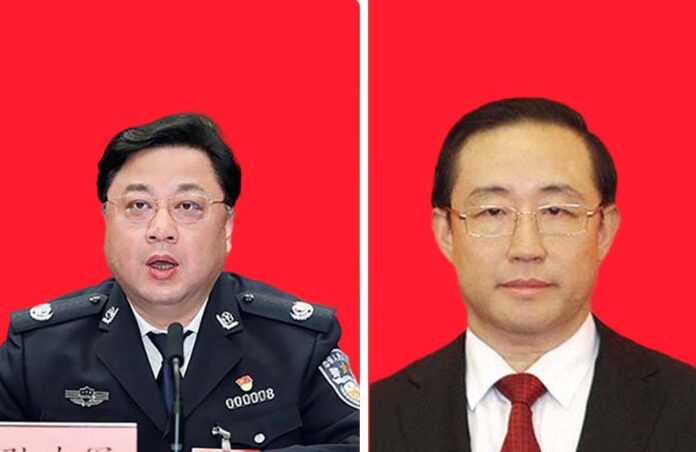
(TibetanReview.net, Oct04’21) – The game of throne in China is a grim one and apart from corruption, the charges against Mr Sun Lijun, former vice minister of public security, included allegations that he had displayed “extremely inflated political ambition and very poor political integrity,” issued groundless criticisms of the Party’s policies, and spread political rumors, reported the official globaltimes.cn Oct 2, citing the official Xinhua news agency.
Sun, also a former member of the Party Committee of the Ministry of Public Security, was expelled from the Communist Party of China (CPC) and dismissed from his post in a Sep 30 announcement for grave discipline and law violations.
Accused of having “overweening political ambitions”, “building cabals and cliques to take over a key government department”, “arbitrarily disagreed with central policy guidelines”, and holding a stash of confidential materials, his case was transferred to the state prosecutor, paving the way for his trial, reported the Chinese service of rfa.org Oct 1.
***
And Mr Fu Zhenghua, China’s former justice minister and deputy police chief, seem to be sought to be taken down for being a rising political star, targeted for corruption. On Oct 2, the ruling Communist Party’s anti-corruption watchdog announced Fu was under investigation for “serious violations of party discipline and law.”
In Xi’s China, the purges of political rising stars and powerful officials have become a common occurrence, noted the edition.cnn.com Oct 4, referring to Chinese President Jinping.
Fu was once a rising star in law enforcement and widely regarded as an ally of Xi Jinping, noted the cnn.com report. He was the man in charge of a special investigation that brought down the most powerful official in the Chinese President’s sweeping anti-corruption campaign: Zhou Yongkang, China’s former security tzar and retired member of the Politburo Standing Committee, the pinnacle of power in the party. Zhou was jailed for life in 2015 for corruption and abuse of power.
As the deputy minister of public security, Fu, in 2013, unleashed a sweeping crackdown on opinion leaders on Chinese social media site Weibo, detaining several high-profile commentators with large followings. He was also in charge of the nationwide roundup of human rights lawyers and activists in 2015, in what has become infamously known as the “709 crackdown,” according to people close to the detained lawyers.
Following news of his downfall, several veteran investigative journalists said on social media they had been targeted by Fu for their hard-hitting reports, on topics ranging from illegal detention of petitioners to local government corruption, the report said.
“The targets of Fu Zhenghua’s crackdown are people at the core of China’s civil society. Therefore, the country’s whole intellectual sector and the wider public are all thrilled by (his fall from grace),” Wu Qiang, a political analyst in Beijing, was quoted as saying.
In fact, the report said Fu’s downfall was being widely celebrated – both by people working for the regime, and by those who have been subject to its repression.
***
A third deputy police chief and former head of the international policing agency Interpol was sentenced last year to 13 and a half years in prison for corruption, the report noted.
Fu is the latest senior official to be ensnared in Xi’s massive purge of China’s domestic security agencies, which was launched last year. It comes ahead of a major party leadership reshuffle next fall, when Xi is expected to hold on to power for a third term – becoming the first Chinese leader to do so in more than two decades, after he abolished presidential term limits in 2018, said the cnn.com report.
The report cited political analyst Wu as saying the series of purges betrayed the fragility of trust from the Chinese leadership in the country’s domestic security agencies. “It is very difficult for Beijing to have political trust. This is the biggest crisis in its governance,” he has said.


